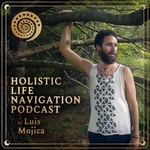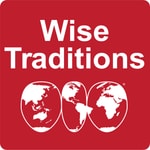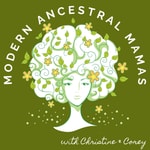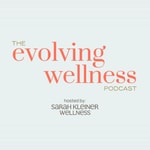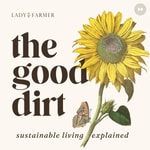Unshod with D. Firth Griffith – Détails, épisodes et analyse
Détails du podcast
Informations techniques et générales issues du flux RSS du podcast.
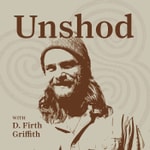
Unshod with D. Firth Griffith
Daniel Firth Griffith
Fréquence : 1 épisode/19j. Total Éps: 57

Conversation about relearning the kinship worldview with author, horse-drawn woodwright, and renowned storyteller, D. Firth Griffith. Unshod is a podcast and community that believes to rebel, we must pause, that we live with Earth as Earthlings, that we must approach creativity, curiosity, and compassion in conversation.… but we must approach this ground UNSHOD. This has nothing to do with "saving the world." It has everything to do with leaving the right kind of tracts in the mud.
Classements récents
Dernières positions dans les classements Apple Podcasts et Spotify.
Apple Podcasts
🇬🇧 Grande Bretagne - alternativeHealth
11/07/2025#93🇨🇦 Canada - alternativeHealth
10/06/2025#99🇬🇧 Grande Bretagne - alternativeHealth
03/03/2025#63🇬🇧 Grande Bretagne - alternativeHealth
01/03/2025#100🇬🇧 Grande Bretagne - alternativeHealth
28/02/2025#63🇬🇧 Grande Bretagne - alternativeHealth
27/02/2025#35🇬🇧 Grande Bretagne - alternativeHealth
26/02/2025#80🇬🇧 Grande Bretagne - alternativeHealth
18/02/2025#87🇨🇦 Canada - alternativeHealth
15/02/2025#78🇬🇧 Grande Bretagne - alternativeHealth
02/02/2025#99
Spotify
Aucun classement récent disponible
Liens partagés entre épisodes et podcasts
Liens présents dans les descriptions d'épisodes et autres podcasts les utilisant également.
See all- https://understandingag.com/
132 partages
- https://charleseisenstein.org/
86 partages
- https://mandascott.co.uk/
29 partages
- https://www.instagram.com/mackfarms
3 partages
- https://www.instagram.com/chelita.zainey
3 partages
- https://www.instagram.com/annaborgman
2 partages
- https://youtu.be/60zILA328zo
1 partage
Qualité et score du flux RSS
Évaluation technique de la qualité et de la structure du flux RSS.
See allScore global : 52%
Historique des publications
Répartition mensuelle des publications d'épisodes au fil des années.
Rewilding Mythology, Embracing Grief, and Rediscovering Ecological Wisdom through Story with Sophie Strand
Saison 4 · Épisode 19
lundi 9 septembre 2024 • Durée 01:10:55
Have you ever felt a profound sense of grief for "the environment" and wondered how this heart-sense may ties into our kinship and ancient stories?
Join our online community to discuss these ideas!
In this episode, Sophie Strand and I explore this complex interplay, highlighting how symbiosis and mutual aid have played pivotal roles in evolutionary advancements and how consuming food, metabolism, is an act of metamorphosis.
From the intimate dance between plants and fungi that reshaped our world, to personal reflections on seasonal changes, Sophie and I share our collective journey through climate grief and adaptation. We emphasize the essential nature of being grounded in our surroundings and fostering a kinship with the land.
We also discuss the idea of uncertainty. What if embracing uncertainty could open up new ways of understanding our environment? New and old ways made new in their re-rooting. We tackle the topic of binary thinking, drawing on cognitive science and Andy Clark's work on predictive processing, revealing how rigid certainty can alienate us from nature. Sophie also carries the fascinating language of fungi (mycorrhizae and hyphae) to illustrate the broader ecological implications of communication, communion, and community. Through these connections, we underscore our often misguided efforts to control nature and the false sense of predictability it brings.
Lastly, Sophie weaves together ancient myths and modern reinterpretations to uncover their ecological wisdom. Whether it's the symbolic cave art of Lascaux or the misunderstood roles of plants like autumn olive and Johnson grass, myths serve as durable vessels of environmental and social knowledge. We invite you to rethink these narratives as not just cultural artifacts, but as repositories of scientific data and ecological insights.
Join us in this rich tapestry of stories, science, and spirituality, and rediscover the interconnectedness of life, death, and rebirth within our ecosystems.
Read Sophie's Books HERE. Follow Sophie on Substack HERE.
Buy Daniel's latest book HERE.
Sophie Strand is a writer based in the Hudson Valley who focuses on the intersection of spirituality, storytelling, and ecology. But it would probably be more authentic to call her a neo-troubadour animist with a propensity to spin yarns that inevitably turn into love stories.
Rediscovering Turtle Island with Taylor Keen
Saison 4 · Épisode 18
lundi 2 septembre 2024 • Durée 01:12:18
What if the history you thought you knew was wrong? Like, actually and so very wrong...
Join us for a powerful conversation with Taylor Keen, a Cherokee Nation citizen, carrier of the name, “Bison Mane” of the Earthen Bison Clan of the Omaha Tribe, The People Who Move Against the Current. He is the author of the book, "Rediscovering Turtle Island: A First People's Account of the Sacred Geography of America."
Taylor brings to life the ancient creation myths of his people, indigenous cosmology, and the rise of empires like Cahokia, challenging us to rethink our settler historical narratives. We also explore the seventh generation prophecy and the severe impact of smallpox on indigenous populations, marking significant historical changes with the arrival of European settlers. Taylor shares the transformative story of the white bison calves' birth, a symbol of the end of six generations of hardship and the dawn of a new era where indigenous knowledge is finally recognized and valued.
Inspired by works like Vine Deloria Jr.'s Custer Died for Your Sins and God Is Red, Taylor emphasizes the crucial role of indigenous voices in reclaiming and retelling their histories. Dive with us into the intricate web of ancient stories, the legacies of colonization, and the enduring resilience of native peoples.
Learn more about Taylor Keen HERE and buy his book HERE!
Read Daniel's latest book HERE.
Meeting The Potato, Talking to Plants, and Why Compassion is Humanity with Joe Rowland
Saison 4 · Épisode 11
mardi 2 juillet 2024 • Durée 01:25:57
What if the drive for digital and agricultural perfection one and the same? What if the industrial complex, the "machine," is more than the technology that surrounds us but the technological identity working, slithering, oozing, its way out of us?
In this episode, Joe and Daniel examine the complexities of recycling, sustainability, and regenerative agriculture. Hear our (Joe's!) candid reflections on the tension between immediate health concerns and the long-term environmental goals of the "green movements," questioning the authenticity of current regenerative movements. Our conversation emphasizes the importance of genuine ecological efforts over profit-driven motives, urging for a sincere commitment to ecological balance, to finding ourselves.
Join us as we challenge traditional, patriarchal values and explore a more connected, holistic way of living. Reflecting on personal experiences and drawing inspiration from indigenous perspectives, we discuss how the quest for perfection can overshadow meaningful relationships and self-worth. We highlight the potential for living in harmony with our environment and emphasize the importance of active participation in our community discussions on The Wildland Chronicles. Thank you for your support!
Conversate with us and become a member of our community for FREE! Join The Wildland Chronicles here!
Buy the latest book, Stagtine, here!
From Denusion to Unshod, Why We Changed our Name
Saison 4 · Épisode 10
vendredi 28 juin 2024 • Durée 16:04
Welcome to Unshod (previously called Denusion)! This episode is a solocast with D. Firth Griffith on the nature of being, his paradigm shift away from "saving the world," why he wrote his latest book (Stagtine), and why all of this leads to the new name: Unshod.
Conversate with us and become a member of our community for FREE! Join The Wildland Chronicles here!
Buy the latest book, Stagtine, here!
Stay tuned for some exciting episodes...
Dreaming Our Way Forward and the Power of Story with author, Manda Scott
Saison 4 · Épisode 9
mercredi 12 juin 2024 • Durée 25:22
In this episode, D. Firth Griffith and Manda Scott discuss the power of "dreaming the future" into being, of story, and the wonderful soul found when we simply inhabit the stories in and around us.
Buy Stagtine, my latest book here!
About Manda:
Born in Scotland at 318ppm CO2, Manda Scott was once a veterinary surgeon and is now a novelist, smallholder, renegade economist and host of the Accidental Gods podcast. Best known for the Boudica: Dreaming series, she’s co-creator of the Thrutopia Masterclass and her new novel, Any Human Power is a Thrutopian political thriller woven through with Boudica-style dreaming: a new mythos for a new reality.
Manda's Website and Books
- Pre-Order Any Human Power
- Dreaming Awake Training
- Accidental Gods Podcast and Community
- Thrutopia Writing Masterclass
- Manda's Website
Regeneration as a Monolith to Money-Making PART II with Jeremy Dumphy
Saison 4 · Épisode 8
jeudi 6 juin 2024 • Durée 47:37
In this episode, D. Firth Griffith and Jeremy Dumphy discuss the misrepresentation of conventional agriculture and the reductionist and binary perspective of regenerative agriculture. They explore the impact of modern accessibility on agriculture and the lack of nuance in the regenerative movement. They also emphasize the importance of context, community, and balance, calling us homeward and not into globalism. The conversation explores the tension between balance and capitalism in the context of regenerative agriculture. It delves into the practicality of growing grains for sale locally and the importance of limits. The discussion also highlights the heroic narrative often associated with regenerative agriculture and the disconnect between stated reasons and actual motivations. The conversation concludes with a discussion on mandatory agricultural systems and the subversive nature of self-sufficiency in place of community ownership or participation.
Get the book: https://wildtimshel.com/collections/books/products/stagtine
Join Our Substack: https://danielfirthgriffith.substack.com
Jeremy's Website: https://www.pasturesongfarm.com
Episode Takeaways
- The regenerative movement often misrepresents conventional agriculture and fails to acknowledge the importance of grains in the food system.
- The binary perspective of regenerative agriculture as good and conventional agriculture as bad oversimplifies the complexities of farming practices.
- The modern accessibility of buying grains from anywhere has led to a lack of local accountability and reciprocity in the regenerative movement.
- The regenerative movement needs to embrace nuance and consider the regional context and diverse farming practices.
- Community and balance are crucial in regenerative agriculture, and the focus should be on building relationships and finding sustainable solutions. Regenerative agriculture exists in tension with the capitalist drive for growth and profit.
- The practicality of growing grains for sale depends on regionalized understandings of regeneration and the balance between production and ecological resilience.
- The heroic narrative surrounding regenerative agriculture often overlooks the complexity and limits of natural systems.
- The marketing of regenerative agriculture can sometimes prioritize marketability over true ecological regeneration.
- Achieving regional balance in agriculture requires considering the interconnectedness of landscapes and the limitations of individual farms.
- Nuance is essential in understanding and practicing regenerative agriculture, as it involves balancing multiple factors and recognizing the unique context of each farm. Balancing decisions and resources is crucial in agriculture.
Regeneration as a Monolith to Money-Making PART I with Jeremy Dumphy
Saison 4 · Épisode 7
samedi 25 mai 2024 • Durée 01:07:21
In this episode, D. Firth Griffith and Jeremy Dumphy discuss the misrepresentation of conventional agriculture and the reductionist and binary perspective of regenerative agriculture. They explore the impact of modern accessibility on agriculture and the lack of nuance in the regenerative movement. They also emphasize the importance of context, community, and balance, calling us homeward and not into globalism. The conversation explores the tension between balance and capitalism in the context of regenerative agriculture. It delves into the practicality of growing grains for sale locally and the importance of limits. The discussion also highlights the heroic narrative often associated with regenerative agriculture and the disconnect between stated reasons and actual motivations. The conversation concludes with a discussion on mandatory agricultural systems and the subversive nature of self-sufficiency in place of community ownership or participation.
Get the book: https://wildtimshel.com/collections/books/products/stagtine
Jeremy's Website: https://www.pasturesongfarm.com
Episode Takeaways
- The regenerative movement often misrepresents conventional agriculture and fails to acknowledge the importance of grains in the food system.
- The binary perspective of regenerative agriculture as good and conventional agriculture as bad oversimplifies the complexities of farming practices.
- The modern accessibility of buying grains from anywhere has led to a lack of local accountability and reciprocity in the regenerative movement.
- The regenerative movement needs to embrace nuance and consider the regional context and diverse farming practices.
- Community and balance are crucial in regenerative agriculture, and the focus should be on building relationships and finding sustainable solutions. Regenerative agriculture exists in tension with the capitalist drive for growth and profit.
- The practicality of growing grains for sale depends on regionalized understandings of regeneration and the balance between production and ecological resilience.
- The heroic narrative surrounding regenerative agriculture often overlooks the complexity and limits of natural systems.
- The marketing of regenerative agriculture can sometimes prioritize marketability over true ecological regeneration.
- Achieving regional balance in agriculture requires considering the interconnectedness of landscapes and the limitations of individual farms.
- Nuance is essential in understanding and practicing regenerative agriculture, as it involves balancing multiple factors and recognizing the unique context of each farm. Balancing decisions and resources is crucial in agriculture.
Why Climate Change Doesn't Need (more) Science w/ Dougald Hine
Saison 4 · Épisode 6
vendredi 26 janvier 2024 • Durée 01:00:26
In this conversation, Dugald Hine of the Dark Mountain Project and A School Called HOME and the author of the book, At Work In The Ruins, discusses the limitations of science in addressing climate change and the need to question and reevaluate our understanding of the issue.
He emphasizes the importance of embracing vernacular knowledge and ways of knowing, as well as living in hope and embracing the home, the community. Hine also explores the need for a new narrative that goes beyond the singularization of knowledge and the supremacy of science. He discusses the concept of coming home and the work of regrowing a living culture, as well as the role of hospitality and conviviality in creating a sense of home.
Overall, the conversation highlights the importance of turning inward and embracing home as a way to navigate the challenges of climate change and create a more sustainable future.
Watch this Episode on YouTube: YouTube Link!
Takeaways
- Climate change raises questions that go beyond what science can answer, necessitating a reevaluation of our understanding of the issue.
- The singularization of knowledge and the supremacy of science limit our ability to address climate change effectively.
- Embracing vernacular knowledge and ways of knowing, as well as living in hope and embracing depth education, can provide alternative paths forward.
- Creating a sense of home and regrowing a living culture are essential for navigating the challenges of climate change and creating a sustainable future.
- Hope is not a fixed concept but rather an empty palm into which something might land.
- Embracing uncertainty and letting go of the need to know the future is essential.
- Taking responsibility for the present and future is crucial in addressing global challenges.
- Getting implicated and actively engaging with the realities and needs of the world can lead to meaningful action.
Dougald Hine is a social thinker, writer and speaker. After an early career as a BBC journalist, he cofounded organizations including the Dark Mountain Project and a school called HOME. He has collaborated with scientists, artists and activists, serving as a leader of artistic development at Riksteatern (Sweden’s national theatre) and as an associate of the Centre for Environment and Development Studies at Uppsala University. At Work in the Ruins concludes the work that began with Uncivilization: The Dark Mountain Manifesto (2009), co-written with Paul Kingsnorth, and is his second title with Chelsea Green, following the anthology Walking on Lava (2017).
Learn more about Dougald here: dougald.nu/about
Learn more about Daniel here: danielfirthgriffith.com
Join Daniel's Substack here: danielfirthgriffith.substack.com
What World Are We Trying To Save? w/ Hadden Turner
Saison 4 · Épisode 5
samedi 20 janvier 2024 • Durée 01:16:22
In this conversation, Daniel Firth Griffith and Hadden Turner of Over The Field explores the themes of agrarianism, localism, and the challenges of dismantling the consumeristic system in the face of a climate emergency.
We cover topics such as the refuge of authenticity, the concept of the machine, the tension between industrialism and agrarianism, the challenge of time and scale, the delusion of modernity and consumerism, resilience in the face of a climate emergency, and the need for consumerism to die. The conversation highlights the importance of locally adapted farming practices and the role of individuals and communities in creating change, from the inside out.
The conversation explores the question of what we are trying to save in the face of the climate emergency. It delves into the importance of focusing on the local place and disentangling ourselves and our communities from the desire to be everything to everyone.
Watch this Episode on YouTube: YouTube Link!
Takeaways
- The machine refers to the mindset of totalizing efficiency and industrial farming, which is driven by the desire for mass production and consumption.
- Agrarian solutions are long-term and locally adapted, and they require a shift in human desires and a willingness to make sacrifices.
- Resilient local systems can be fostered by supporting local farmers, paying the full price for food, and living in a way that is adjacent to the consumeristic machine.
- Dismantling the consumeristic system is a complex challenge that requires a shift in societal values and a rejection of the delusion of modernity.
- While time is of the essence in addressing the climate emergency, agrarian solutions may not match the pace needed to avert the crisis, and it may be necessary to prepare for and adapt to a future of chaos and collapse. In the face of the climate emergency, it is important to question what we are trying to save.
- Focusing on the local and taking responsibility for our immediate surroundings is crucial.
- We need to disentangle ourselves from the desire to be everything to everyone.
- Personal introspection and change are necessary for addressing the challenges we face.
- Hope can be found in the local and the seeds of renewal.
Hadden's Substack: overthefield.substack.com
Daniel's Substack: danielfirthgriffith.substack.com
Daniel's Website for Courses: Website Link
Open Pollinated Grains w/ Rupert Dunn
Saison 4 · Épisode 4
mardi 16 janvier 2024 • Durée 01:30:25
In this conversation, Rupert shares his journey of growing heritage grains and the importance of cross-pollination and adaptation in the field. He emphasizes the relationship between wheat fields and forests, highlighting the need for biodiversity and relationship.
Rupert and Daniel also discuss the impact of capitalism on farming and the search for meaning in the face of challenges. They explore the connection between death and capitalism, and the need for emergence and relationship in rewilding and baking. The conversation concludes with a reflection on the transformative power of bread making and the importance of finding meaning and relationship in farming.
Watch this Episode on YouTube: YouTube Link!
Rupert is available to support farmers, individuals and organizations with advice, mentoring and support with sourcing, growing, milling and baking with heritage grains as well as the design for regenerative cultures for organizations. He can be contacted at panisvita@protonmail.com where you can also pre-register for a copy of the 'Peasant Bakery Toolkit'.
Takeaways
- Growing heritage grains involves cross-pollination and adaptation in the field, leading to a diverse and ever-changing population of wheat varieties.
- The relationship between wheat fields and forests is important, as the presence of trees and other plants enhances biodiversity and flavor in the grains.
- The impact of capitalism on farming has led to a loss of meaning and relationship, but there is a growing movement towards regenerative practices and community building.
- Finding meaning in farming requires embracing the unknown and being open to emergence, as well as maintaining a deep relationship with the land and the process of growing food.



